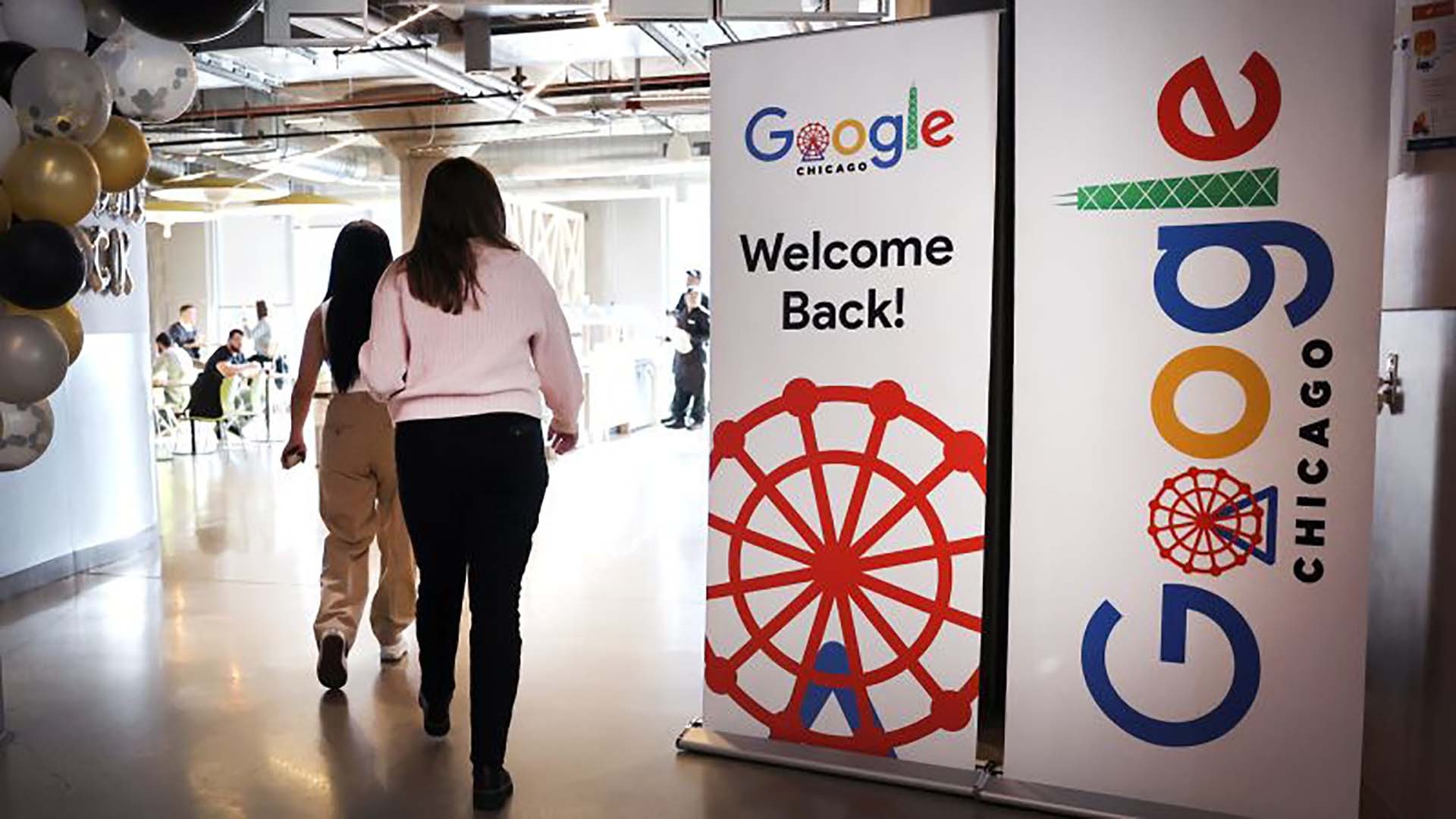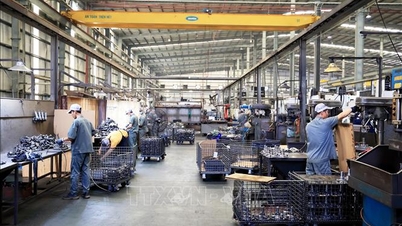 |
| Google employees return to work in the office three days a week after a two-year hiatus due to the Covid-19 pandemic. Illustration photo. (Source: Getty Images) |
Google, a pioneer in the technology industry, strictly enforces a policy that requires employees to work in the office at least three days a week.
Google spokesman Ryan Lamont said the new policy “is going well and we want to see employees connect and collaborate in person, so we are limiting remote work, with exceptions.”
yt
According to Mr. Lamont, company leaders are reviewing reports about how their employees are adopting different work practices. The company has been implementing a hybrid work-from-home model for more than a year, he said, and “we are formally integrating it into all of our workplace policies.”
Unwanted
The new policy has left many employees frustrated. Chris Schmidt, a Google software engineer, told CNN that “the company ignores employee professionalism and instead implements attendance and ties it to employee performance reviews. The new policy creates unnecessary hardship for employees and shows no consideration for the different life circumstances of employees.”
Google isn’t the only one facing employee resistance, as other tech companies are also struggling to figure out how best to get employees back into the office after they’ve become accustomed to working remotely. The tug-of-war is made more complicated by the fact that tech companies have laid off tens of thousands of workers over the past year.
At Amazon, tensions boiled over last week when hundreds of employees staged a walkout to call attention to their grievances, including the company's three-day workweek, which will be implemented from May 2023.
Amazon employee Pamela, who spoke at the march, said she created an online chat room on Slack called Remote Advocacy to provide a space for employees to discuss the impact of the company's return-to-work policy on their lives.
“The chat room is now up to 33,000 people,” Pamela told the crowd at the march, calling the pro-remote work chat “the most visible expression of employee dissatisfaction in the company.”
Still, employee pushback doesn't change the fact that these companies have spent billions of dollars on workplace space over the years and often talk about the value of workplace interaction.
In response to the walkout, Amazon said it may take time for employees to adjust to returning to the office for longer periods of time. It was pleased to see more people back in the office in the first month, claiming “energy, collaboration and connection” were occurring in the company environment.
Facebook's parent company, Meta, is also making an effort to do the same, announcing that employees will be required to return to work three days a week starting this September. A Meta spokesperson told CNN that the policy is not too rigid and that employees assigned to work remotely will continue to do so.
According to software engineer Chris Schmidt, when all workers come to work in the office, there is no guarantee that you will have enough space to sit and work.
“Many teams are working remotely, and for some of our roles, we may not need to collaborate with anyone in the office,” he said. “Right now, many companies in New York don’t even have enough desks and conference rooms for employees to comfortably use.”
Adjusting appropriate working methods
The Covid-19 pandemic has been controlled, countries are returning to normal life, businesses are gradually increasing the number of employees working directly, moving towards all workers returning to the office.
“I am satisfied with the remote working method because of its convenience and efficiency. As long as I have a laptop with internet connection, I can do many things at the same time and work anywhere,” said Samie Dorgham, an employee of an AI startup in London (UK).
In the US, collected data shows that job-hopping and labor shortages in businesses are at high levels, while companies are struggling to recruit and retain workers.
A poll by US survey firm ADP of 33,000 people worldwide found that two-thirds of respondents said they would look for a new job if they were unnecessarily forced to return to the office full-time.
Business Insider (USA) even headlined that Gen Z will quit if they have to return to work in the office. The imbalance between the number of job seekers and the number of workers needed to fill vacancies is causing wages in some industries to increase.
Nowadays, many companies have applied technology to reduce labor density in the workplace.
Food packaging plants, indoor manufacturing and warehousing have accelerated the deployment of robots. Robots are being used to assist in hospital and hotel room service orders. Demand for ordering applications in restaurants and hotels is growing. Many companies are adding self-checkout to grocery stores and pharmacies. Companies are increasingly interested in robotic process automation to handle paperwork and reduce density in office spaces.
“We deserve a voice in shaping the policies that impact our lives, to establish clear, transparent and fair working conditions for all,” said Chris Schmidt.
It can be seen that finding appropriate measures to adjust working methods will be an important condition to maintain the operations of many businesses and organizations in the context of the economy recovering after Covid-19.
Source


![[Photo] Unique art of painting Tuong masks](https://vphoto.vietnam.vn/thumb/1200x675/vietnam/resource/IMAGE/2025/11/14/1763094089301_ndo_br_1-jpg.webp)

![[Photo] Unique architecture of the deepest metro station in France](https://vphoto.vietnam.vn/thumb/1200x675/vietnam/resource/IMAGE/2025/11/14/1763107592365_ga-sau-nhat-nuoc-phap-duy-1-6403-jpg.webp)

































![[Photo] Special class in Tra Linh](https://vphoto.vietnam.vn/thumb/1200x675/vietnam/resource/IMAGE/2025/11/14/1763078485441_ndo_br_lop-hoc-7-jpg.webp)









































































Comment (0)